bigdata
Latest

Facebook suspends Trump-linked data firm Cambridge Analytica (update: response)
Late Friday night, Facebook has announced it's suspending Strategic Communication Laboratories (SCL) from its site. While you may not have heard of SCL, its political analytics firm Cambridge Analytica has made headlines in the last few years due to work for the Trump campaign and the Brexit initiative. According to former US Magistrate and current Facebook Deputy General Counsel Paul Grewal, this move is occurring because an app "thisisyourdigitallife" pulled in personal information of the 270,000 people who used it as well as information from their friends. While this is allowed under its policy, its creator -- a Cambridge psych professor named Dr. Aleksandr Kogan -- passed the data onto other parties including Cambridge Analytica.
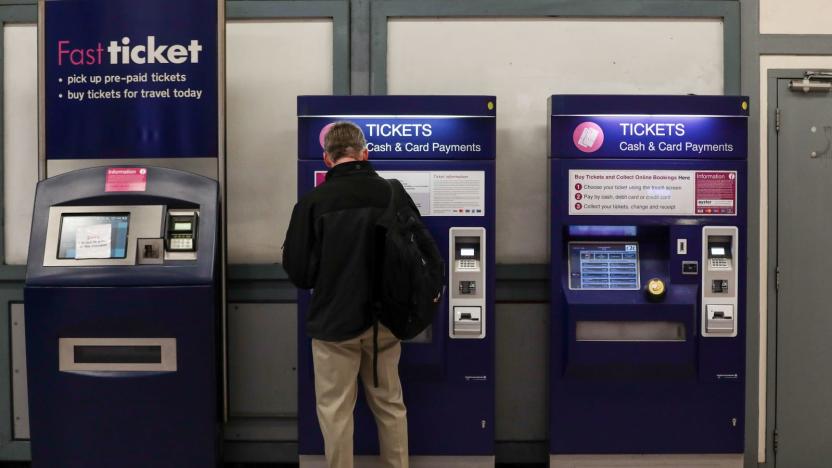
The Trainline is using big data to predict when ticket prices rise
Just like flights, hotels and Uber rides, train ticket prices rise when rail operators anticipate there will be increased demand for their services. It often leaves passengers scrambling to find a combination of tickets that won't break the bank, even when they're booking weeks before they travel. Train companies obviously want to protect profits by keeping their pricing structures a secret, but independent ticket retailer The Trainline believes it can now accurately predict when things will start to get expensive.
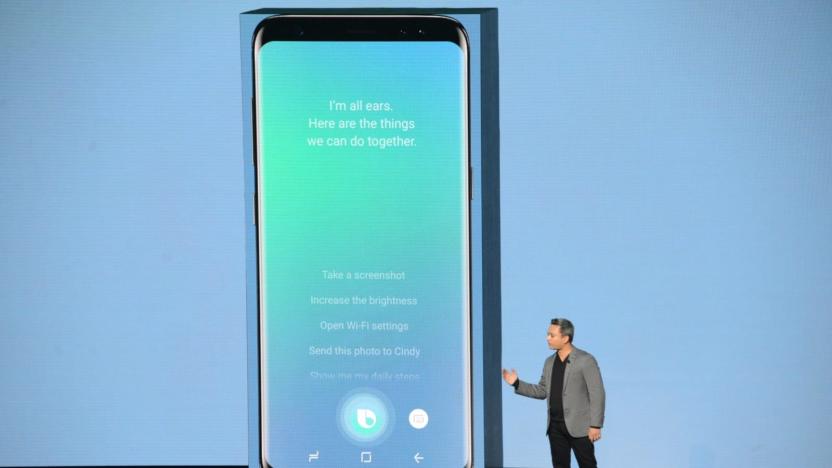
Samsung needs data before Bixby is ready for English speakers
Wondering why Samsung still hasn't enabled Bixby voice features in English despite promising a launch in the spring? Apparently, it's down to a lack of info. A spokesperson tells the Korea Herald that the company just doesn't have enough "big data" to make its AI-powered voice assistant available in languages besides Korean. It needs that extra knowledge to train Bixby's deep learning system, the Herald says. That's borne out by US beta testing: Samsung says there have been some 'unsatisfactory' responses so far.

Stanford study uses big data to highlight racial biases in policing
A group at Stanford University has taken on the issue of racial bias in law enforcement with an ongoing study called the Open Policing Project. The researchers have also created a website that makes not only their findings available, but all of their data and analysis coding as well.
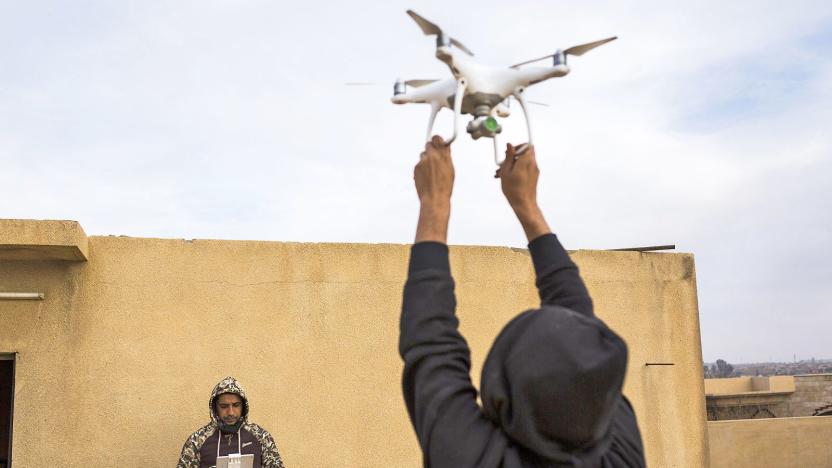
The Pentagon is hunting ISIS using big data and machine learning
Military and civilian intelligence analysts "overwhelmed" by the sheer volume of video surveillance data recorded over the America's numerous military incursions against ISIS will soon get some relief. The Pentagon announced on Monday that it is tasking its newly-minted Algorithmic Warfare Cross Functional Team (AWCFT), dubbed Project Maven, with using big data and machine learning to accelerate the process of discovering actionable intelligence in all that aerial imagery.
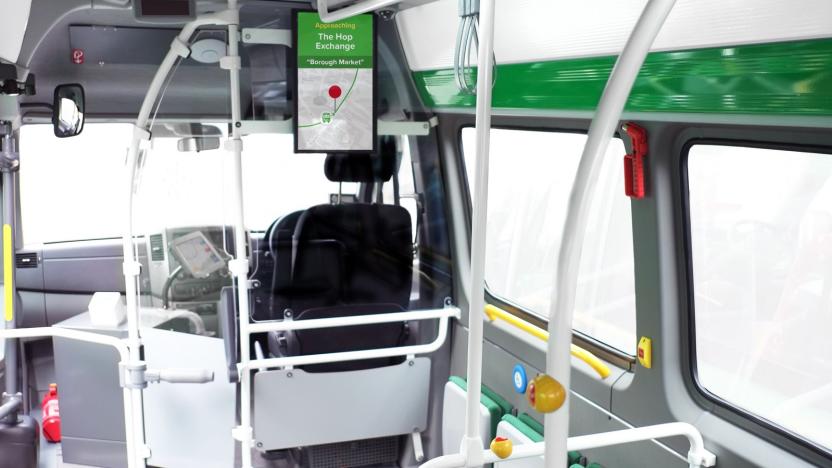
Route planner Citymapper experiments with its own bus service
Citymapper is known for its popular route-planning app that helps people get around town. This week, though, the company is taking a more active approach to transportation, operating an actual bus route in London. CMX1 will only run from Tuesday, May 9th, through Wednesday, and it'll be free for all passengers. As you'd expect, it'll also feature in the Citymapper app and show up in route suggestions where appropriate. But what might surprise you is this isn't quite the marketing stunt it appears at first to be. Citymapper is legitimately thinking about becoming a public transportation player.
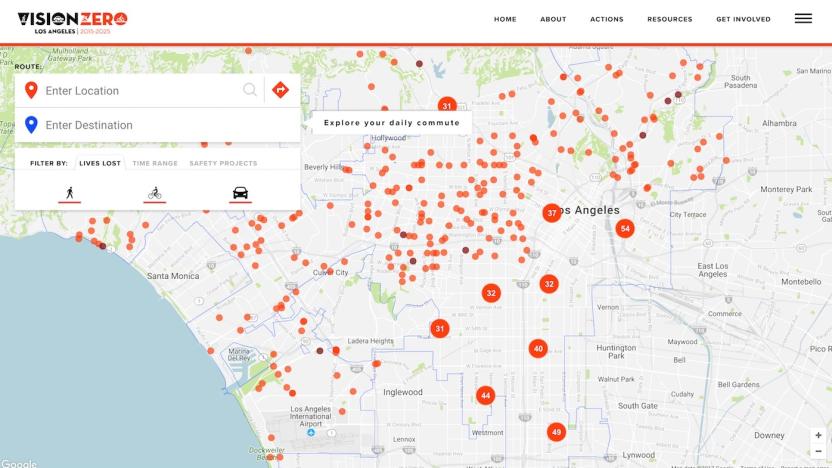
LA fights soaring pedestrian deaths with an interactive map
Open data can be an incredibly powerful tool, but it still requires context and people to actually pay attention to the information for it to be valuable. Los Angeles has discovered this the hard way. Its Vision Zero initiative aims to eliminate traffic deaths by 2025, but compared to other cities with similar programs, LA is coming up short in terms of results. After the program's first full year (2016), fatalities rose by some 43 percent according to the Los Angeles Times. There are a number of reasons for this, including more pedestrian and bicycle traffic, distracted driving and driving under the influence. To combat the rising number, the city looked to data as a means of discerning the most fatal roadways.
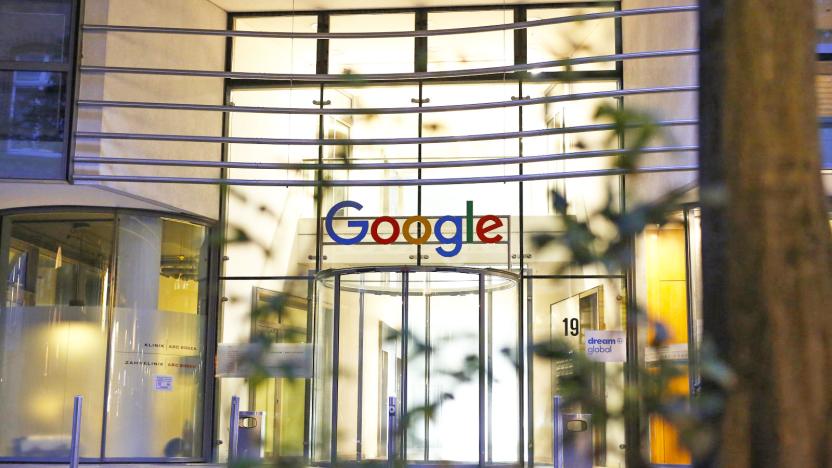
Google is donating $11.5 million to racial justice causes
Google will invest $11.5 million to support racial justice, the company announced in a blog post today. The funds are split between 10 different causes, with $5 million going to the Center for Policing Equality. "CPE's National Justice Database is the first in the nation to track national statistics on police behavior, including stops and use of force, and standardizes data collection across many of the country's police departments," Justin Steele, a Google.org principal, writes on The Keyword blog.

University offers course to help sniff out and refute 'bullshit'
Not only is fake news everywhere, but its purveyors call genuine news fake, making it doubly hard for the average person to know what's real and what's Inception. For example, President Donald Trump recently made up a terrorist attack in Sweden, and when the nation's former PM called bullshit, he said the refutation itself was "fake news." Luckily, there's now a course at the University of Washington, "Calling Bullshit in the Age of Big Data" that helps you find bad information and show others why it's bad.

Google needs your help building better video analysis algorithms
You probably haven't heard of YouTube-8M, but it's a big deal for anyone working in the field of machine learning. In short, it's a large database of labeled video content that programmers can use to test out their algorithms. Today, Google announced that YouTube-8M is getting a major update, with even more labels across more its videos, as well as audio elements. And the company is also aiming to make the dataset even better with a Kaggle competition, which will offer big bucks from a $100,000 prize pool to teams who build the best algorithms for tagging around 700,000 new videos (using the 8M dataset for training).

In IBM's future, Watson will be your doctor
IBM is working on a way to make its Watson supercomputer a far more effective medical tool for flesh-and-blood doctors. The company wants to use the platform to analyze medical imaging data to learn what a healthy set of insides looks like. It should then be able to identify when things have gone awry in scan images to direct doctors toward areas of concern. If this data is merged with each patient's medical records, it could mean faster and more effective treatment for serious conditions.

ACLU sues US over law limiting data discrimination studies
It's no secret that algorithms can be biased against certain demographics, but the American Civil Liberties Union wants more proof -- and it's willing to go to court to get it. The organization has sued the US in the belief that the Computer Fraud and Abuse Act prevents studies on algorithm-powered discrimination, allegedly violating free speech rights. As the Act makes it a crime to violate a website's terms of service, the ACLU claims, it's frequently impossible to comb through publicly available site data that would reveal racism, sexism or other biases in the code. That, in turn, hampers researchers and journalists (the ACLU is representing The Intercept's publisher in this case) who want to expose illegal behavior.

Big data shows racial bias in police behavior
Stanford University just delivered further proof that massive, readily available data sets can solve tricky law enforcement problems. School researchers combing through a mix of 28,119 Oakland Police Department stop reports, officer body camera footage and community surveys have learned that there are "significant" racial biases at play. OPD officers are not only more likely to stop a black person, but far more likely to conduct searches of black people, even though they weren't any more likely to find something incriminating. Officers more frequently handcuffed black people without arresting them, too. And the pattern is the same regardless of the crime rate in a given region.

Chicago turns to big data to predict gun and gang violence
Chicago has been inundated with gun-related crimes over the past year -- nearly 3,000 people were shot in 2015, along with another 240 already in 2016. However, in a city of 2.7 million, the CPD attributes much of this violence to a small segment of the larger population: gangs. So rather than blanket a neighborhood with cops to quash the violence (which has always worked just so well), the CPD has taken a more surgical approach. They've developed an algorithm that can help predict which people are most at risk of committing or being targeted by gun violence.

White House launches neighborhood-building open-data project
The White House announced on Monday that it is launching an ambitious online program that aims to help families and communities alike by giving them the tools to access a package of federal and local data-sets. The Opportunity Project, as it's been dubbed, will help families and community organizations to "navigate information about critical resources such as access to jobs, housing, transportation, schools, and other neighborhood amenities" the White House release reads.

MIT mapped where Boston's biggest energy hogs reside
Boston might be best known for the longstanding baseball rivalry between its Red Sox and the New York Yankees, but maybe the nerdier folks among us will think of it beyond Fallout 4 and PAX East now. Researchers from the Massachusetts Institute of Technology have developed a model for estimating gas and electricity demand for every building in the city. Some 100,000 edifices are included and the model is even being used to aid in making decisions regarding energy policy, according to PhysOrg.
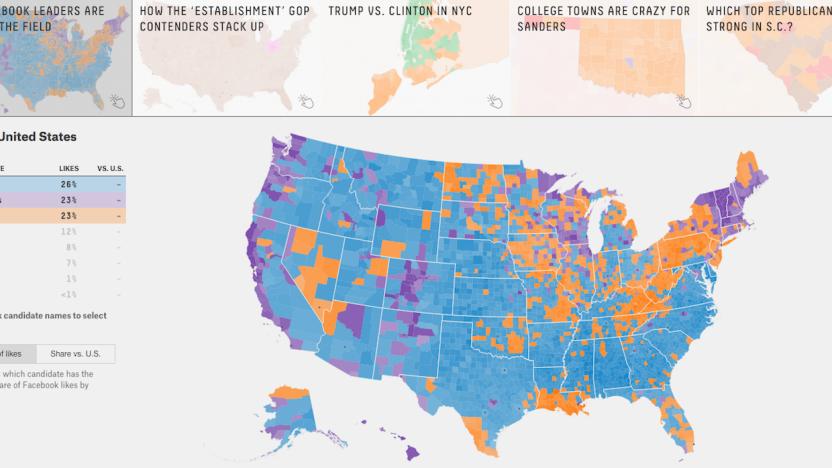
The 2016 presidential race according to Facebook 'likes'
The data-minded folks over at FiveThirtyEight have teamed up with Facebook to find out what parts of the country support which candidate via an interactive map. While FiveThirtyEight stresses that this is in no way a representative sample (Facebook users skew heavily younger, low-income and female, for instance), it's still interesting to see where candidates stack up in terms of page likes.

Linked love: OKCupid offers options for polyamorous couples
One of OkCupid's biggest advantages versus other matchmaking sites is the seemingly endless amount of dating data its users provide voluntarily in an effort to find a compatible mate. The flip-side of that is OkCupid can use that information to tailor its site to emerging trends -- like offering the option for polyamorous folks to link their profiles to make finding like-minded people easier. Rather than awkwardly creating a joint account or hoping those 11 letters stand out among the rest of your profile text, The Atlantic writes that now those who list themselves as "seeing someone," "married," or "in an open relationship" can link their profiles (similar to Facebook) to eliminate any sort of confusion.

Your phone knows if you're bored by how much you use it
Researchers at Barcelona's Telefonica Research lab have developed a smartphone-based algorithm that determines a user's level of boredom based on how much they're using the device. The algorithm also takes a number of factors such as time of day and how long it's been since receiving a call or text into account as well. With it, the researchers were able to accurately gauge a user's level of boredom 83 percent of the time.

Big Data VR app allows researchers to 'browse' genomes
Earlier this year, Epic Games (the folks that made the Unreal Engine) held a $20,000 competition that challenged VR companies to create programs that could help users better tackle the valuable, albeit unwieldy, figures in Big Data sets. For its entry into "The Big Data VR Challenge" Hammerhead VR submitted The Genome Browser, a virtualization that will allow researchers to, quite literally, browse through an organism's genome and access a library of data (generated by the Wellcome Sanger Institute) at each gene.









